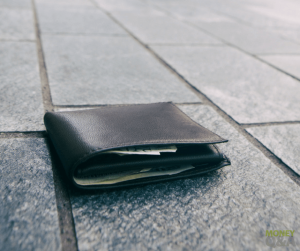The following is a guest post by Kelly Kehoe. If you’d like to submit a guest post to Money Q&A, check out our guest posting guidelines.
 Credit and debit card fraud happens all the time, but if you’re traveling abroad like I did recently, it can be a nightmare to deal with. After withdrawing money from an ATM just once in Barcelona, I received an email two days later about a withdrawal that had posted to my account amounting to $540.
Credit and debit card fraud happens all the time, but if you’re traveling abroad like I did recently, it can be a nightmare to deal with. After withdrawing money from an ATM just once in Barcelona, I received an email two days later about a withdrawal that had posted to my account amounting to $540.
Another transaction from the same vendor with the odd name (it was Russian, according to my frantic Google search) was pending for $285. I immediately emailed my credit union (it was 9pm back home) and within 12 hours, my ATM card was completely shut down.
While I was grateful that no other fraudulent charges would show up, I was now in trouble because I had zero access to my bank accounts (except online), no cash (a lot of places I went to in Europe, especially Germany, were cash-only), and 8 more days left of my trip with just a credit card to help me pay for expenses.
How to Get Cash After Your Debit Card is Stolen
To save you a headache and anxiety of confronting the same problem I did, here are some things I learned while dealing with debit card fraud abroad:
What to Do When Your Debit Card is Stolen
The Federal Trade Commission outlines your legal rights in cases of credit or debit card fraud. If you’re lucky like I was – even though I didn’t feel “lucky” at the time! – and you still have your debit card in your possession, then you won’t be liable for any of the fraudulent charges as long as you report them within 60 days.
If your debit card was lost or stolen, however, you could be liable for up to $50 of the charges if you notify your bank or credit union within 2 days. If you notify them after 2 days but before the 60-day mark, then your liability increases to $500. If you wait longer than 60 days, then you could be liable for the entire amount of fraudulent charges. Even if you have to pay a couple dollars to call your bank from abroad, it’s worth it to report the charges as early as possible.
Once you report the fraudulent charges, your bank or credit union will likely email you a dispute form to fill out and return (ask a representative how long you can wait to submit this if you don’t have access to a computer or printer while traveling). Depending on your financial institution, you could get your money back within 48 hours to 3 weeks, on average. To ensure other aspects of your personal identity are safe, keep a close eye on your credit report for the next couple months as well.


 As our book,
As our book, 



